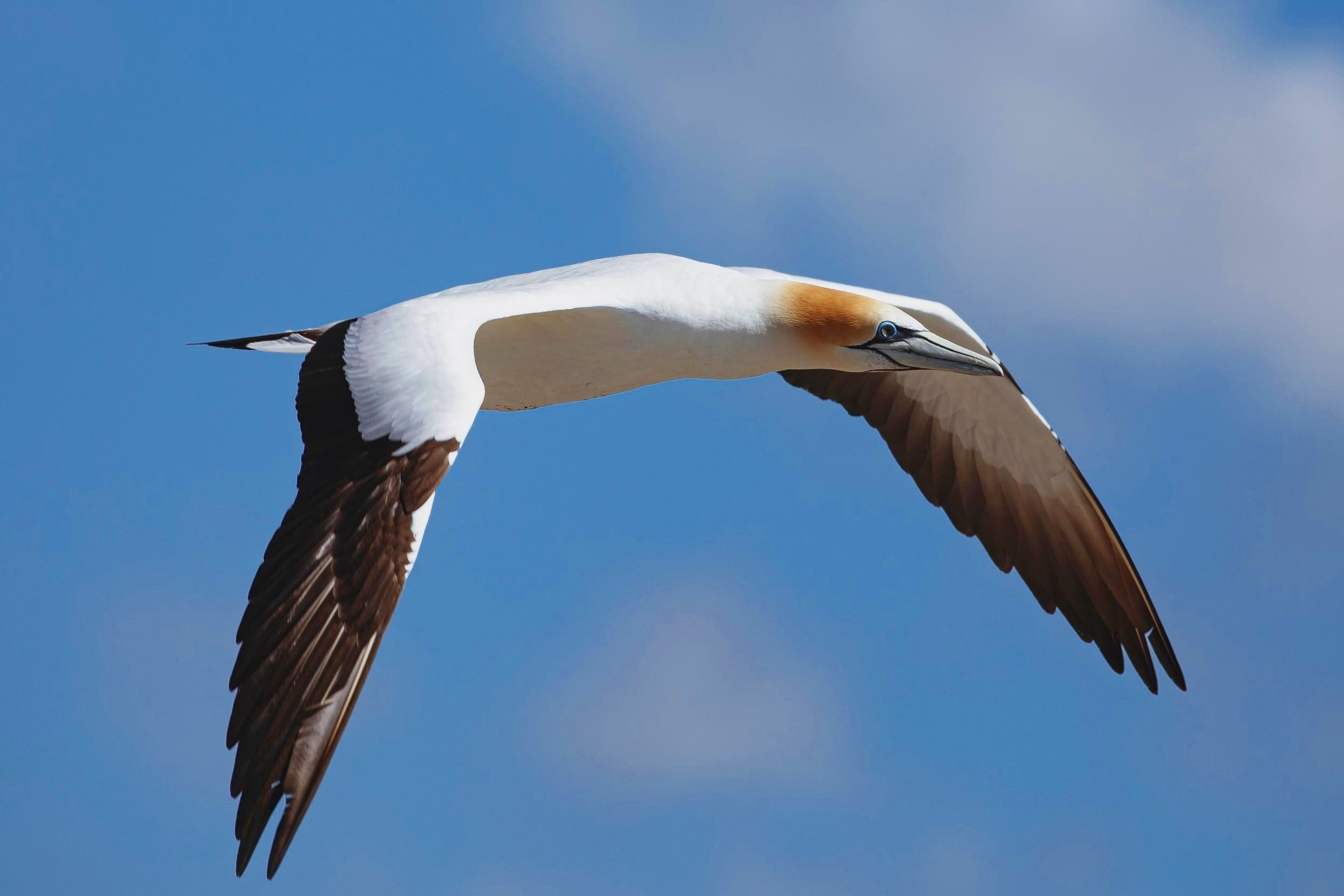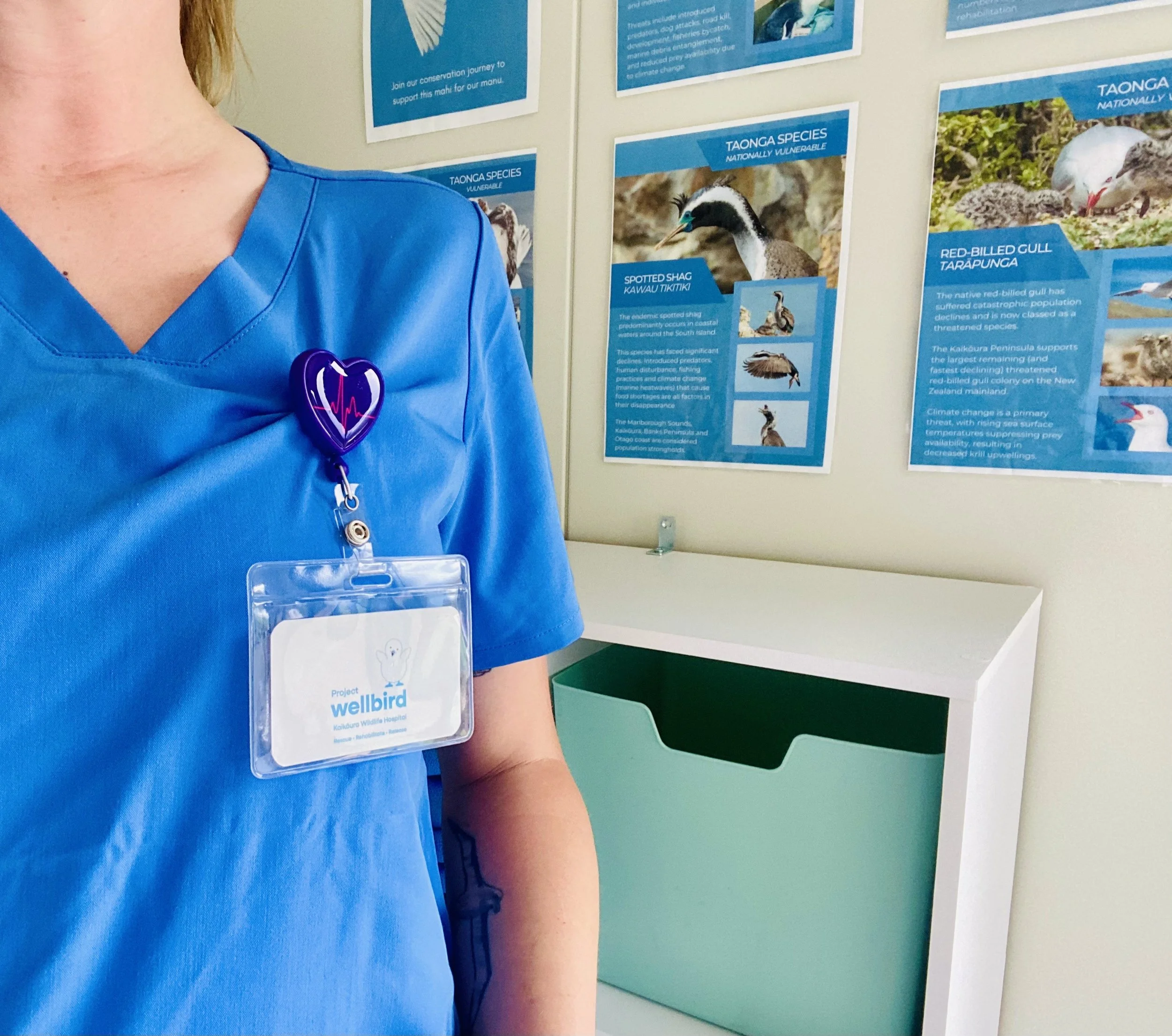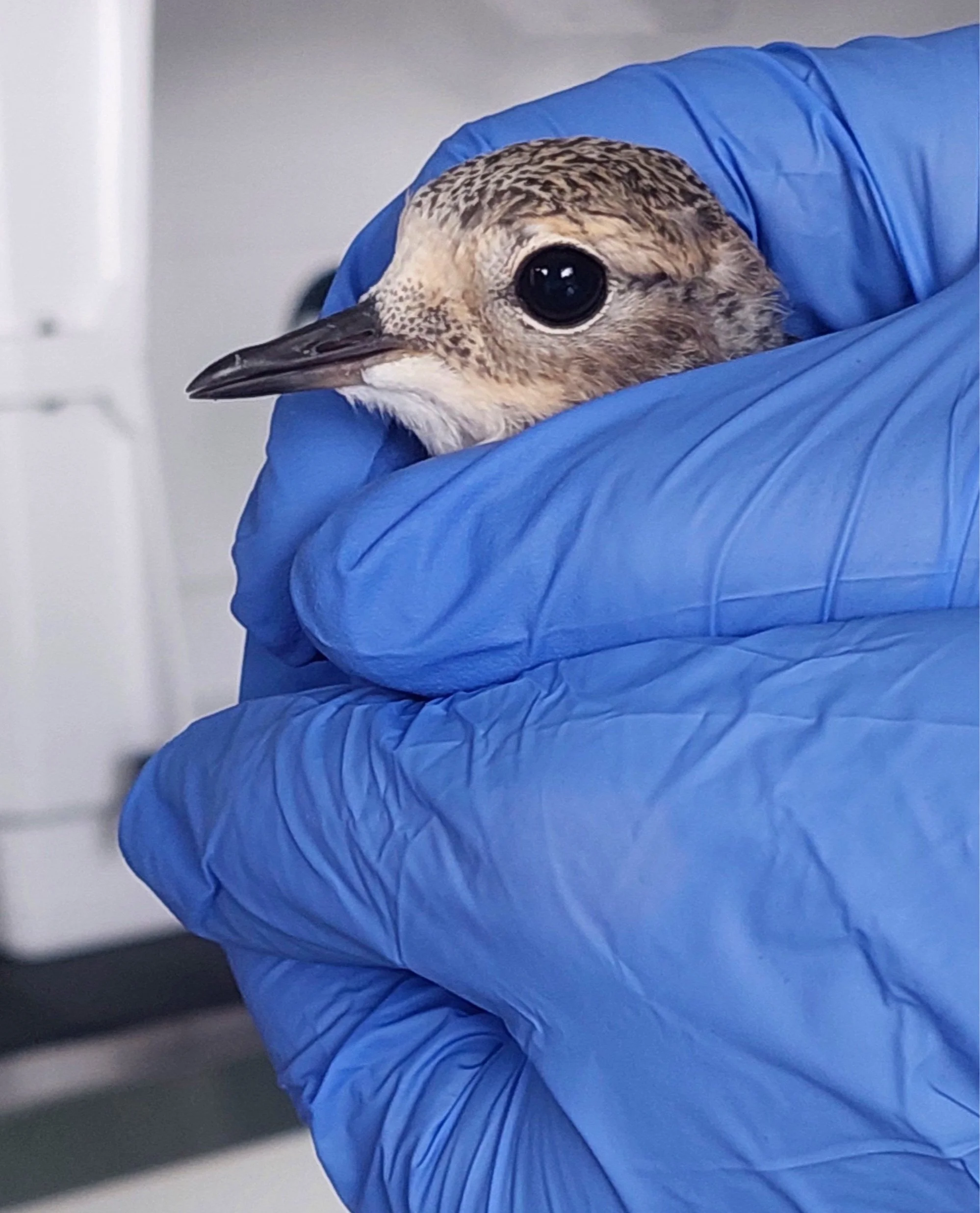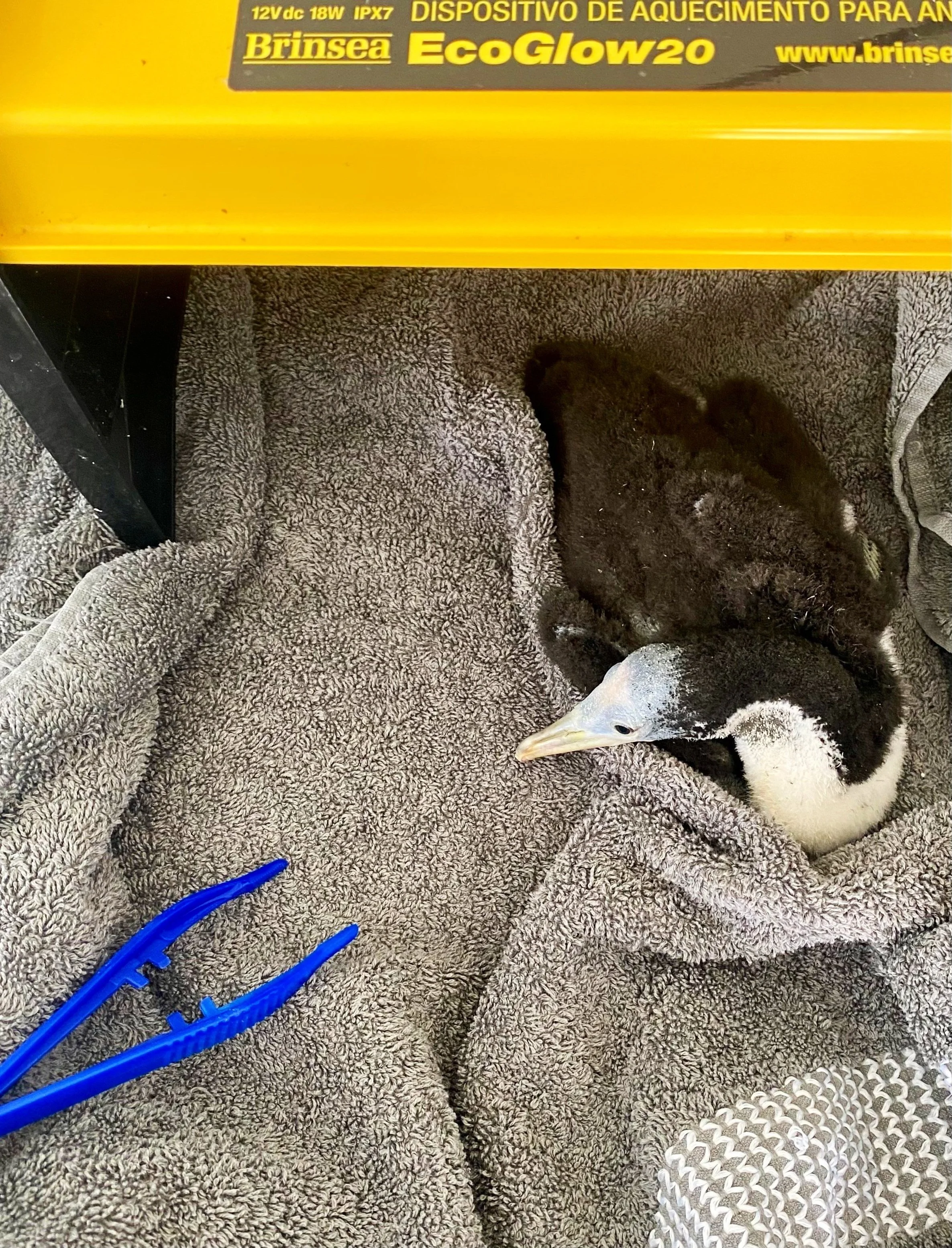
Project WellBird
Our Vision
To implement a wildlife hospital centre in Kaikōura, dedicated to the rescue and rehabilitation of unwell native wildlife.
To provide urgent care and emergency response, alongside conservation programmes that enable wildlife and people to thrive.
To highlight the intrinsic value of native species and wildlife health in conservation management.
Our Journey
The Trust’s Founder has voluntarily rescued and rehabilitated hundreds of injured and ill native birds annually. The majority of wildlife patients (primarily threatened seabirds) require treatment due to human related causes. Many species rely on medical treatment, requiring stabilising and transfer further afield for diagnostics, specialist care, surgery and rehabilitation. The time and transport involved in stabilising and transferring wildlife, means critically ill patients are exposed to additional stressors and delays in urgent treatment, which impact on survival. The intensive voluntary workload and financial burden is unsustainable for a sole rehabilitator in a biodiverse region with a high incidence of wildlife patients. The Trust’s focus is to facilitate a lasting solution, to enable resources and the development of a wildlife hospital, serving as a biodiversity hub and community asset.
Our Project
The Trust was founded to promote the preservation, public education and sustainable management of threatened species. The vision is focused on developing a world-class wildlife hospital and conservation services, in a global biodiversity hotspot and site of international importance. Project WellBird is a conservation initiative focused on capacity building, to facilitate a critical environmental and community service to aid at-risk species and improve animal welfare outcomes. Wildlife care in Kaikōura is an urgent commitment to species preservation and a brighter future for the region’s marine environment. The centre will support wildlife health by providing expert veterinary care, offsetting population declines, mitigating human impacts, and acting as a beacon of hope. The Trust was granted $87,998.00 by the NZ Lotteries Commission to facilitate a feasibility study. The Trust is currently under way with Stage 1, with a long-term goal of reaching Stage 2.
Stage 1 | Modular Wildlife Units
Stage 2 | Wildlife Hospital Centre
Wildlife Hospital
Kaikōura Wildlife Hospital will be a sanctuary for unwell wildlife to recover from injury and illness, acting as a care and response facility that caters to the needs of at-risk species. The multi-disciplinary centre will offer specialist avian wildlife healthcare in New Zealand’s seabird capital, with wildlife veterinarians, vet nurses and wildlife technicians who are dedicated to the rescue and treatment of wildlife.
The wildlife hospital and recovery unit will provide critical veterinary care and technical expertise by offering essential services to enable patient treatment and recovery - including examination, anaesthesia, x-rays, lab diagnostics, medications, fluid therapy, nutritional support, intensive care, wound care, life saving surgeries, physio and rehabilitation.
Patients undergoing treatment will not be on public display. Rehabilitation and rearing programmes will involve daily care, feeding, maintenance, enrichment and behavioural monitoring. Return to the wild is the ultimate goal for every patient, and it can take extensive efforts to achieve this.
Oil Spill Response
The wildlife hospital will act as an oil spill response facility for oiled wildlife in the North Canterbury/South Marlborough region. Birds exposed to a high concentration of dispersant experience an immediate life-threatening loss of feather waterproofing and buoyancy. External oiling of seabirds can cause large scale mortality within days following a spill, while survivors can suffer long-term effects.
The centre will work to minimise the effects of any oil pollution incident (including spills of other hazardous or noxious substances) on aquatic wildlife, by assisting as an emergency response provider.
Education Centre
Alongside wildlife hospital services, a multi-functional conservation centre will enable advocacy and outreach programmes. An innovative educational complex will provide an interactive discovery zone with displays, exhibits and learning resources. Conservation programmes from pre-school to high school will inspire, instil knowledge, cultivate understanding, and foster the next generation of kaitiaki. Developed by educators and community partners, educational resources will include curriculum links across classroom and field activities.
Recovering wildlife patients will be housed in pre-release aviaries to regain fitness, with screened walls and discrete viewing windows incorporated into enclosures to minimise disturbance. Not all recovering patients will be on display, however permanent residents may also be housed at the centre.
The centre will showcase conservation in action, facilitating public engagement to inspire better species protection. The facility will be a significant asset in the Kaikōura region, acting as a biodiversity hub.
Training & Research
The centre will host wildlife rehabilitation workshops and conferences to facilitate an integrative and multi-sectoral approach. Veterinary locum placements and volunteering opportunities will also facilitate training in animal welfare and wildlife medicine.
The centre will collaborate with researchers to inform knowledge gaps in ecology, epidemiology, viral disease emergence, veterinary pathology and conservation biology. Research on disease impacts and threats is vital to support endangered species and optimise ecosystem health. The relationship between wildlife health and conservation is interlinked, with the centre aiming to inspire the next generation of wildlife professionals.












